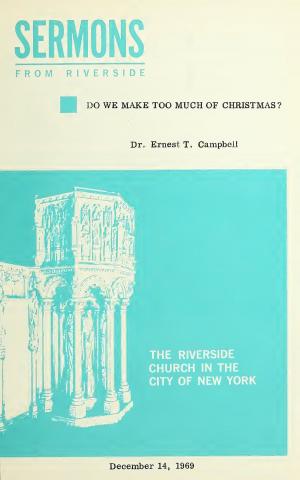Augustine and the Pelagian Heresy
Nonfiction, Religion & Spirituality, Christianity, Christian Literature, Church, Church History, General Christianity| Author: | B. B. Warfield | ISBN: | 1230002193915 |
| Publisher: | CrossReach Publications | Publication: | March 3, 2018 |
| Imprint: | Language: | English |
| Author: | B. B. Warfield |
| ISBN: | 1230002193915 |
| Publisher: | CrossReach Publications |
| Publication: | March 3, 2018 |
| Imprint: | |
| Language: | English |
It was inevitable that the energy of the Church in intellectually realizing and defining its doctrines in relation to one another, should first be directed towards the objective side of Christian truth. The chief controversies of the first four centuries and the resulting definitions of doctrine, concerned the nature of God and the person of Christ; and it was not until these theological and Christological questions were well upon their way to final settlement, that the Church could turn its attention to the more subjective side of truth. Meanwhile she bore in her bosom a full recognition, side by side, of the freedom of the will, the evil consequences of the fall, and the necessity of divine grace for salvation. Individual writers, or even the several sections of the Church, might exhibit a tendency to throw emphasis on one or another of the elements that made up this deposit of faith that was the common inheritance of all. The East, for instance, laid especial stress on free will: and the West dwelt more pointedly on the ruin of the human race and the absolute need of God’s grace for salvation. But neither did the Eastern theologians forget the universal sinfulness and need of redemption, or the necessity, for the realization of that redemption, of God’s gracious influences; nor did those of the West deny the self-determination or accountability of men. All the elements of the composite doctrine of man were everywhere confessed; but they were variously emphasized, according to the temper of the writers or the controversial demands of the times. Such a state of affairs, however, was an invitation to heresy, and a prophecy of controversy; just as the simultaneous confession of the unity of God and the Deity of Christ, or of the Deity and the humanity of Christ, inevitably carried in its train a series of heresies and controversies, until the definitions of the doctrines of the Trinity and of the person of Christ were complete. In like manner, it was inevitable that sooner or later some one should arise who would so one-sidedly emphasize one element or the other of the Church’s teaching as to salvation, as to throw himself into heresy, and drive the Church, through controversy with him, into a precise definition of the doctrines of free will and grace in their mutual relations.
It was inevitable that the energy of the Church in intellectually realizing and defining its doctrines in relation to one another, should first be directed towards the objective side of Christian truth. The chief controversies of the first four centuries and the resulting definitions of doctrine, concerned the nature of God and the person of Christ; and it was not until these theological and Christological questions were well upon their way to final settlement, that the Church could turn its attention to the more subjective side of truth. Meanwhile she bore in her bosom a full recognition, side by side, of the freedom of the will, the evil consequences of the fall, and the necessity of divine grace for salvation. Individual writers, or even the several sections of the Church, might exhibit a tendency to throw emphasis on one or another of the elements that made up this deposit of faith that was the common inheritance of all. The East, for instance, laid especial stress on free will: and the West dwelt more pointedly on the ruin of the human race and the absolute need of God’s grace for salvation. But neither did the Eastern theologians forget the universal sinfulness and need of redemption, or the necessity, for the realization of that redemption, of God’s gracious influences; nor did those of the West deny the self-determination or accountability of men. All the elements of the composite doctrine of man were everywhere confessed; but they were variously emphasized, according to the temper of the writers or the controversial demands of the times. Such a state of affairs, however, was an invitation to heresy, and a prophecy of controversy; just as the simultaneous confession of the unity of God and the Deity of Christ, or of the Deity and the humanity of Christ, inevitably carried in its train a series of heresies and controversies, until the definitions of the doctrines of the Trinity and of the person of Christ were complete. In like manner, it was inevitable that sooner or later some one should arise who would so one-sidedly emphasize one element or the other of the Church’s teaching as to salvation, as to throw himself into heresy, and drive the Church, through controversy with him, into a precise definition of the doctrines of free will and grace in their mutual relations.















